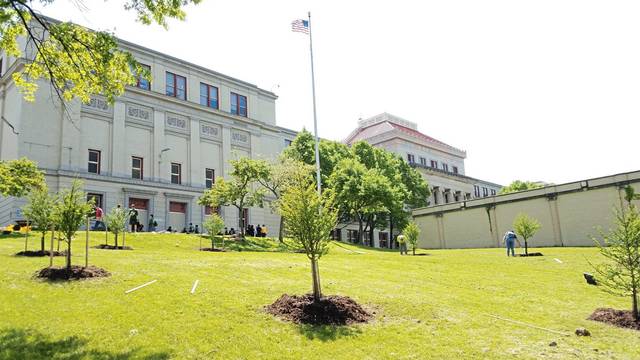All Pittsburgh students will receive passing grades, as district struggles to meet tech needs
All students in Pittsburgh Public Schools will receive passing grades for the fourth quarter, district leaders announced Thursday in a virtual news conference.
“The grading guidelines are designed to hold students harmless,” said David May-Stein, chief of school performance. “Not all kids are going to be able to do this effectively to where learning can be accurately measured.”
Grading guidelines were adjusted to avoid penalizing students with unequal access to remote learning technology. Based on a survey that was sent to students early in the pandemic, the district knew there was a need for around 17,000 laptops and tablets, but existing inventory at the time was only around 2,400 that would work outside school buildings.
Under the new guidelines, May-Stein said students and parents are in close contact with teachers, who can provide feedback so assignments can be revised. Courses will be credit-bearing when applicable, but students will not be able to receive lower than a 70%.
For the fourth quarter, students will either receive their third-report grade or their actual fourth-report grade – whichever is higher, said May-Stein.
“Our intention is to give students every opportunity to earn the highest grade possible for the fourth report period, if they can,” he said.
The district has been ordering new laptops, thanks to donations from community partners. Theodore Dwyer, chief of data, research, assessment and accountability, said there are around 5,500 laptops “in the pipeline.”
Dwyer said the district has deployed 3,470 devices to high school students so far, and has another 576 ready to give middle school students, beginning with eighth grade. Nearly 250 hotspot internet connections were also given to high school students.
The district is still evaluating each school building, collecting laptops and tablets which will be cleaned and distributed. Dwyer said the district has about 3,490 “usable devices” across 14 schools that can be distributed.
The goal isn’t necessarily to provide a device to every student in the district – laptops and tablets are being distributed based on need, for now.
“This is a deployment based on need,” Dwyer said. “Our long-term plans and our long-term goal of one-to-one in every grade would mean we would have to have more devices in every grade.”
Dwyer said the district will continue to evaluate school buildings and search for available technology. If there aren’t enough, he said, they will have to wait for the rest of an order for 4,000 new Chromebooks to arrive. The shipment is supposed to arrive at the end of May.
At a legislative meeting Wednesday, some school board members expressed frustration over the pace at which the district is acquiring and providing technology.
“I know the district was never set up to provide devices, but now we are almost eight weeks into covid-19 shutdown,” said Kevin Carter, of District 8. “I think the tortoise pace by which we are taking this now is becoming bothersome beyond the board and into the community. I’m starting to see a lot of parents complain about our lackluster approach to getting this resolved.”
Other members of the board defended the district’s progress. Board President Sylvia Wilson said the district simply doesn’t have the money to buy all the necessary equipment at once. Hamlet also attributed the delay to a supply and demand issue.
“We could order 10,000 computers,” Hamlet told board members. “That doesn’t mean we’re going to get them in a month or two months, because across America, districts are trying to buy devices for their children.”
Hamlet also said it’s an achievement by the district to have any sort of online education at this point, given the unprecedented situation the district is in.
Still, board members worried about the level of student engagement possible if online learning isn’t universal across the district. William Gallagher, of District 6, said the district must put a greater emphasis, from now on, on achieving a one-to-one ratio of students to devices.
Sala Udin, of District 3, said the district’s preparedness was “woefully inadequate.”
At Thursday’s news conference, though, district leaders were optimistic about how the first official week of remote learning has played out. Chief Academic Officer Minika Jenkins said more than 14,000 packets were distributed last week.
She said the district has received feedback that packets were organized and easy to use, and that students appreciated the online platform being used, Microsoft Teams. Parents praised the flexible schedule and the way teachers are connecting with students, Jenkins said.
May-Stein said leaders are still gathering information about student engagement to plan for future weeks and – possibly – next school year.
“We’re feeling that more students are engaging than not,” he said.
Pittsburgh Public still has aspirations to have enough devices for every student, Hamlet said.
“We were working on making sure our classrooms had one-to-one technology,” he said. “But also having devices to take home is another deal. That’s something that we had aspirations to do, however not this quickly.”
Remove the ads from your TribLIVE reading experience but still support the journalists who create the content with TribLIVE Ad-Free.

